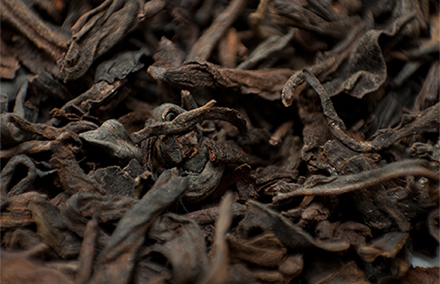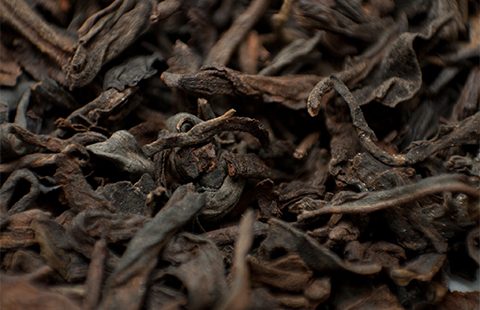
Puer tea leaves. Photo by Toby Oxborrow on flickr https://www.flickr.com/photos/oxborrow/
New Mandala is proud to announce that past contributor and Andrew Walker’s former PhD student, Jinghong Zhang, has won a major global Asian studies prize overnight.
Jinghong’s book, Puer Tea: Ancient Caravans and Urban Chic, was awarded the International Convention of Asia Scholars prize for the best book in the social sciences for 2015.
The prize, awarded biennially, recognises outstanding English-language works in the field of Asian studies.
Puer tea, grown for centuries in the ‘Six Great Tea Mountains’ of Yunnan Province, is a type of dark tea that was also highly prized in imperial China. It was traded to Tibet by horse or mule caravan via the so-called Tea Horse Road and presented as tribute to the emperor in Beijing.
The culmination of her PhD research at the Australian National University, Jinghong’s book charts how puer tea’s distinct process of aging and fermentation, and links to Chinese nobility propelled it to cult status and saw it gain new found popularity across China and the globe. The production of puer tea soon went from being a cottage handicraft to a major industry.
However, while the tea became a favourite consumable among urban aficionados, who paid astronomical prices for it, the market for it suddenly collapsed in 2007.
In awarding the prize to Jinghong, the judges noted that Ancient Caravans and Urban Chic investigates the social life of a once-mundane commodity.
“Taking readers from terraces to forests to luxury hotels, Jinghong Zhang uses classic anthropological methods and reflections on her attendant film-making alongside the powerful centralising metaphor of jianghu, a kind of adjacent reality of murky truths, to relate unique insights into consumption, class, knowledge claims, and even online community in contemporary China,” read the award citation.
“Perhaps most compelling are the ways the rise and fall of puer tea as a desired commodity provides an exploration of ethnicity, indigeneity, and the emergent significance of a supposedly underdeveloped region (Yunnan); all of which are bound up in puer tea, its packaging, its regulation, and the persistent pursuit of authenticity.”
Jinghong Zhang is now based at the Australian National University’s Australian Centre on China in the World as a postdoctoral fellow.
Puer Tea: Ancient Caravans and Urban Chic is available from University of Washington Press.
 Facebook
Facebook  Twitter
Twitter  Soundcloud
Soundcloud  Youtube
Youtube  Rss
Rss 